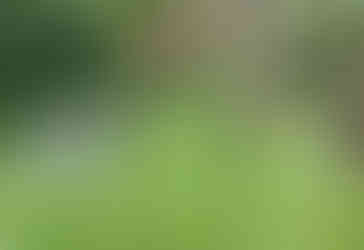Looking Forward to Christmas
- Clare
- Nov 19, 2020
- 3 min read
Tis the season to be jolly...almost...and people are already embracing the festive season as decorations are going up and on line shopping is booming. Consumer spending data from American Express suggests that spending is up this year and people in the U.K. will budget an average of £645 for Christmas expenditure (including clothes, decorations, food and presents). As 2020 has been the kind of year that we would all like to rewind and start afresh, I can understand why people are searching for something positive to focus on and why shops are desperate for us to spend. However, personally, I will be making a conscious effort to spend less this year, to huddle my immediate family close to me and to try to focus on the little things I have to be grateful for.
With this in mind, I decided that we will try to make many of our own decorations this year and our challenge for the coming weekend is to make our own small Christmas wreaths from vegetation that we find in the garden. I am hoping that willow branches will make a good wreath base, and we have lots of ivy that we can use as part of the decoration. Those of you who have read my previous posts will realise that creativity is not my strong point. However, I'm sure we will have fun trying and I will include pictures of our creations in my next post.
The garden is certainly starting to resemble more of a wilderness at this time of year. The remaining stalks of dead perennials and the bare branches of many of the shrubs and trees are a far cry from the buzzing flowers and lush greenery of the summer (as the following few pictures illustrate), though there is still much happening beneath the surface. If the leaves of some of the evergreen perennials are gently parted, for example, clusters of ladybirds can be found nestled in the crevices as they begin their hibernation stage. As the leaves fall from the trees and shrubs, berries and rose hips also become more prominent and these are sustaining the hungry birds that are constantly chattering in the garden.
The hellebores that I planted earlier in the year are flowering, including a lovely Helleborus niger that I have in a pot by the door. Legend has it that the so-called "Christmas rose" sprung from the tears of a young girl who had no gift to give the baby Jesus, and hellebores are widely used to bring colour and ground cover during wintertime. Even the famous writer and garden designer Vita Sackville West was a proponent of the plant and stated that she could not understand why Helleborus niger and its close relative Helleborus orientalis
were not more widely grown as "they will fill up many an odd corner; their demands are few and they will give flowers at a time when flowers are scarce" (In Your Garden, 1951). I also think that, despite growing in shaded areas, and being more related to the buttercup than a rose, there is something rather elegant about a hellebore, even when their heads are shyly nodding towards the ground, and I have been keen to add them to the garden for some time.
Elsewhere in the garden, I did a quick tally of the plants that are still flowering as I raked up some leaves this week and noted the following: cosmos, scabiosa, lavatera, hardy geraniums, hebe, calendula, evening primrose, winter jasmine, daphne, viburnum and several types of rose. The flowers are few and far between but it makes me happy to see them. It is also at this time of year that I am most glad of the evergreens which soften the edges of the garden as it heads towards winter.
Digging by Edward Thomas
Today I think
only with scents, - scents dead leaves yield,
And bracken, and wild carrot's seed,
And the square mustard field;
Odours that rise
When the spade wounds the root of tree,
Rose, currant, raspberry, or goutweed,
Rhubarb or celery;
The smoke's smell, too,
Flowing from where a bonfire burns
The dead, the waste, the dangerous,
And all to sweetness turns.
It is enough
To smell, to crumble the dark earth,
While the robin sings over again
Sad songs of Autumn mirth.
Note: Edward Thomas wrote all of his poems during the years of the first World War, though he was an accomplished writer before the war started. Many of his poems are influenced by the war and also by the countryside which he loved. He died at the battle of Arras in April 1917.



































Comments